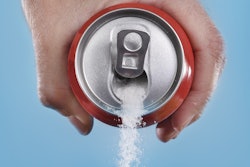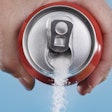
Research published June 1 in JAMA Open Network provides compelling evidence that sugar-sweetened beverage (SSB) taxes decrease consumption of sugary drinks. Though the evidence is convincing, the study's authors urge policymakers to consider the larger impact of these taxes on society.
Though SSB taxes seem to be effective, there are also reasonable concerns that they may be regressive. Individuals with lower incomes are more likely to be significantly impacted by these taxes because they are more likely to consume sugary drinks, and the tax increases constitute a greater percentage of their incomes.
"It is therefore critical that tax proposals include plans to mitigate these costs through equitable investments of tax revenue," wrote the study authors, led by Dr. Joshua Petimar of Harvard Medical School.
Some local U.S. jurisdictions have mitigated these costs through equitable investments of tax revenue into education programs, community infrastructure projects, workforce development, and food subsidies. In doing so, these tax designs provide benefits to lower-income communities while still encouraging healthy choices. Further, proposals that include allocations of tax revenue may be easier to pass, as they are generally viewed more favorably by the public.
Petimar et al further point out how lower-income and minority populations are more susceptible to diet-related diseases. In the U.S, these communities have higher rates of type 2 diabetes and cardiovascular disease, which are associated with extensive costs for communities with limited resources. Sugary drink taxes have the potential to reduce such costs if their impact translates to reductions in disease.
Because of the lack of empirical evidence, Petimar and his team considered the costs and benefits from a similar policy: cigarette taxes. Evidence on cigarette taxes indicates that cost increases are minimized by the longer-term economic benefits of reduced smoking, including reduced health expenses due to smoking-related illnesses, according to the authors.
Given the socioeconomic disparities that exist in diet-related disease, the same effect may also be true for SSB taxes, the authors postulate. Previous research has found that sugary drink taxes are unlikely to have an adverse impact on the economy and employment, like cigarette taxes. Following implementation of SSB taxes, researchers found no changes in employment or market return, suggesting that SSB taxes do not harm local economies.
While research bears out that SSB taxes are an effective tool in reducing sugary drink consumption and, therefore, have the potential to improve diet and health, chronic illnesses are complex. It is challenging for only one policy to substantially change public health outcomes, but improving dietary choices is a worthy goal in itself, the authors noted.
"Jurisdictions that consider implementing these taxes should continue to design them in consultation with lower-income and marginalized communities," Petimar and colleagues concluded. "While these communities may reap long-term benefits from the tax, they are often bearing the short-term burdens. It is crucial that revenue is invested in ways that support low-income communities."



















